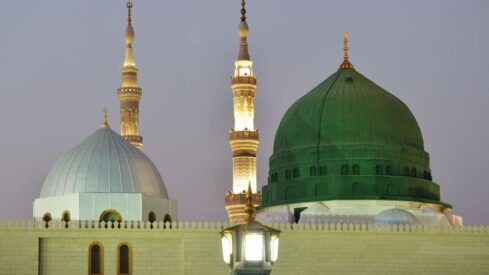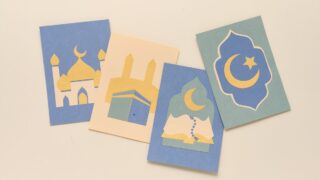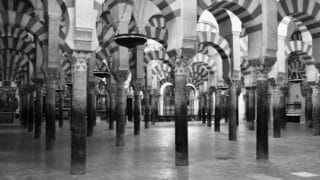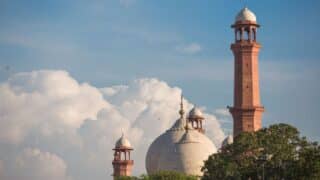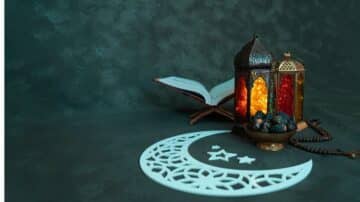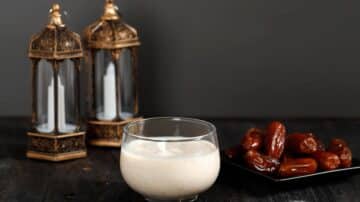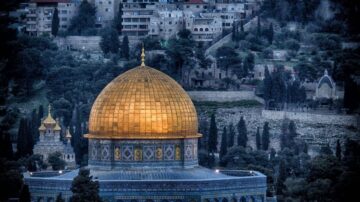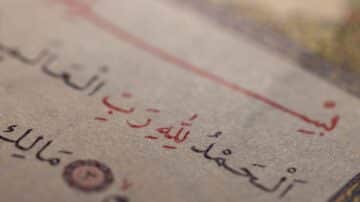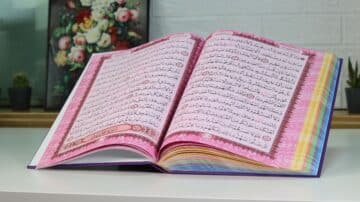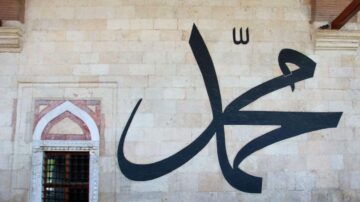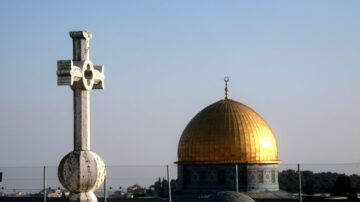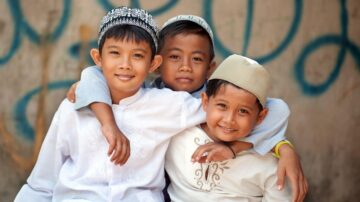This is one more of the ridiculous lies that have been invented in vain to obscure the dazzling truth of Islam and that modern science and media are bringing within reach of all nations. That such a lie is shear nonsense is clarified by the following undeniable facts:
In his youth, Muhammad (peace and blessings be upon him) led a life of purity, meditation, and charity. He avoided all pleasures widely available in Makkah for youth of his age. Though the norm at that time was for men and women to marry in their teens, he remained unmarried till the age of 25, and even then he was married at the invitation of the woman, Khadijah, a 40-year-old widow.
She was his only wife for almost 25 years until she died at the age of 65. At that time the Prophet (peace and blessings be upon him) was in his fifties, carrying the pains and burdens of losing the support of his uncle Abu Talib, who died in the same year, together with the diverse burdens of prophethood, teaching his followers, enduring the fierce resistance of his own tribe and that of allied tribes. Besides, Khadijah died leaving him with four minor daughters. He was subsequently married to a widow, Sawdah bint Zam`ah, so that she could assist him in keeping his household and caring for the daughters.
None of the Prophet’s marriages was motivated by personal desires or caprice, but by honorable aims and wisdom that achieved positive benefit to the call of Islam and the Muslim community. We should also remember that polygamy without limit was prevalent and acceptable (until it was limited—with conditions—to four) and also was practiced by previous prophets. The choice of `A’ishah before her puberty was to foster the companionship of her father Abu Bakr. Further, starting her life with the Prophet that early, `A’ishah was in a position to recall the minute details of everyday life and teachings of the Prophet. Surviving him for four decades, she taught the nation a considerable lot of his guidance. She comes only third, after Abu Hurayrah and `Abdullah ibn `Umar, in narrating the Prophetic hadith.
After his marriage to `A’ishah, the Prophet (peace and blessings be upon him) could not embarrass his close companion `Umar ibn Al-Khattab when he offered his daughter Hafsah in marriage. She had recently been widowed of a senior companion wounded at the Battle of Uhud. `Umar, distressed by what had befallen his daughter, offered her in marriage to Abu Bakr, then to `Uthman ibn `Affan, who both declined. When `Umar complaining of this to the Prophet (peace and blessings be upon him), he replied, “Hafsah is to marry a man better than `Uthman and `Uthman is to marry a lady better than Hafsah.” So it was, the Prophet married Hafsah, and `Uthman married the Prophet’s daughter Ruqayyah, then, after her death, the Prophet’s daughter Umm Kulthum.
All the other marriages were to break hostilities and gain support for the new religion or for humane purposes or, in one case, by Allah’s order. This was in the case of his cousin Zaynab bint Jahsh (mentioned in Surat Al-Ahzab) to establish a legal principle.
Juwayriyah bint Al-Harith was the daughter of the chief of the Jewish tribe of Banu Al-Mustaliq. She was taken as his captive, and the Prophet freed her and married her. At this all the other Muslims followed his lead by freeing all the other captives. As a result, the Jewish tribe all embraced Islam.
Similarly, Safiyyah bint Huyay, daughter of the chief of the Jewish tribe of Banu An-Nadir, was captured during the Battle of Khaybar. Although her father was the main provoker of the pagans and Jews against the Muslims, as an honorable gesture showing the magnanimity of Islam, the Prophet freed and married her.
Again, the Prophet’s marriage to Umm Habibah bint Abi Sufyan, the widowed daughter of the most influential leader of the Quraysh, was a major factor in diminishing his hostility and stubbornness and laid the ground for his embracing Islam right before the final Muslim conquest of Makkah. The reason for this marriage was a noble, humane motive. Umm Habibah and her husband were among the early Muslim immigrants to Abyssinia fleeing from persecution by Makkan pagans. However, her marriage was disrupted when her husband opted to convert to Christianity and then died. So she was left lonely in exile, unable to return to her pagan family in Makkah. So the Prophet (peace and blessings be upon him) kindly sent a messenger to propose to her in marriage and to bring her back to him in Madinah.
As for the Egyptian Mariyah, she was offered to the Prophet (peace and blessings be upon him) as a slave gift from Al-Muqawqis, the leader of the Copts, in return for the Prophet’s message calling them to Islam. Instead of taking her to serve in his household, he kindly settled her in a house of her own. She embraced Islam. Some sources say that she was freed and was one of the Mothers of the Believers. She bore the Prophet his son Ibrahim, who died early.
During the last ten years of his life in Madinah, Muhammad (peace and blessings be upon him) was engaged incessantly in establishing the first Muslim state, bringing into concord the otherwise competing Ansar tribes (Aws and Khazraj) together with the Jews, fighting against the hostilities of pagan Arabs and the conspiracies of Jewish leaders, meeting and sending envoys all around the Arab Peninsula and beyond. A mere ten years witnessed 62 battles, 27 of which were led by the Prophet himself and the rest directed and supervised by himself.
During the same period, he continued to receive the Qur’anic revelation any time of the day or night. He spent most of his nights praying, and most of the daytime in the mosque teaching his followers, planning and running their affairs, and receiving and sending envoys from and to all tribes of the Arab Peninsula, as well as kings of the known world.
Yet, his life was far simpler and more ascetic than any well-off or rich and prestigious men of the time. Neither he nor his household ate more than what was sufficient of food. According to `A’ishah (may Allah be pleased with her): “We, the family of Muhammad (peace and blessings be upon him) used to spend [the whole] month in which we [did not need to] kindle the fire as [we had nothing to cook]; we had only dates and water [to fill our bellies]” (Al-Bukhari and Muslim).
Also Abu Hurayrah (may Allah be pleased with him) narrated: “By Him in Whose hand is my life, by One in Whose hand is the life of Abu Hurayrah, Allah’s Messenger (peace and blessings be upon him) could not afford to provide adequate food to his family which could [fill their bellies] with bread and wheat for three days successively until he left the world” (Al-Bukhari and Muslim).
He used to retire to a bed stuffed with coarse palm fiber. `A’ishah (may Allah be pleased with her) narrated: “The pillow on which Allah’s Messenger (peace and blessings be upon him) reclined was of leather stuffed with palm fiber” (Al-Bukhari and Muslim).
So simple was his household life that his wives once collaborated to protest and complain of their hard life. In response, he isolated himself for almost a month, as documented in the Qur’an, which says what means:
*{O you Prophet, say to your spouses, “In case you would [like] the present life and its adornment, then come, and I will allow you the [necessary] enjoyment and will release you a becoming release. And in case you would [like] Allah and His Messenger and the Last Home, then surely Allah has prepared for the fair-doers among you a magnificent reward.}* (Al-Ahzab 33:28-29)
Could this be the personality, background, or life style of a man keeping 18 slave girls for his own pleasures, as some non-believers claim?
*by Nabil Haroun


